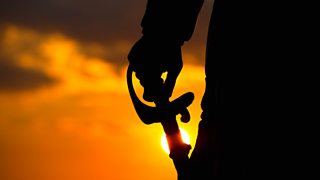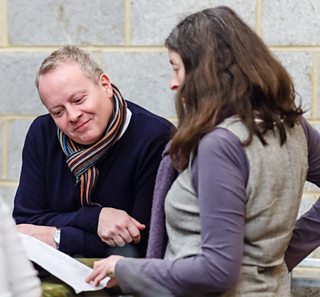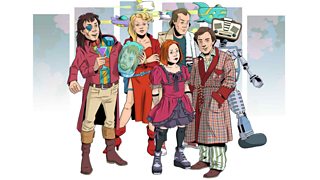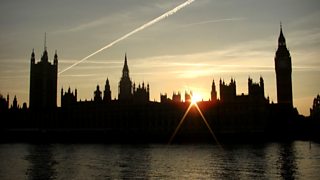Lorenzaccio, which was broadcast on Radio 3 on Sunday 10 March and is available to listen to now on BBC Sounds, is my 21st script for BBC Radio. Lorenzaccio is an adaptation of a French play by Alfred de Musset from the 1830s that I fell in love with as a student and have wanted to find some way of bringing to wider attention ever since. It is set in the Florence of the Medicis in the 1530s, a place of corruption and wealth, cruelty and revenge. It’s a play from the Romantic movement, which, in French playwriting, meant drawing on the sprawling model of Shakespeare rather than the austere purity of the Greeks. Lorenzo, the anti-hero of Lorenzaccio, is a turbulent, troubled soul who has infiltrated the corrupt Medici court with the secret aim of getting close enough to the Duke to assassinate him; but as he gets close to achieving his goal he realises he has lost any sense of his real self and his exposure to the brutal side of humanity has threatened to tarnish his hopes in liberation. It’s an epic play with a whole city as its landscape, and it’s often referred to as the French Hamlet.

Lorenzaccio, adapted by Dan Rebellato for BBC Radio 3. Listen now on BBC Sounds.
When my producer, Polly Thomas, and I first started thinking about pitching Lorenzaccio as a project to Radio 3, we had to make several decisions. For one thing, the play is enormously long, probably pushing five hours. We had to find a way of bringing it down to fit the ninety-minute slot without wholly sacrificing the epic scale that is so distinctive and thrilling about the play. Second, when we pitch a project, we always ask ourselves, why this play and why now? Third, and most important, why is this a play for radio? What will the specific form and dynamics of sound drama add to this play?
The form we eventually arrived at was, in a way, an answer to all three questions. Lorenzaccio is a nineteenth-century play set in the sixteenth century but it is very contemporary. We live in a turbulent political period and many of us have asked, what can good people do in bad times? Lorenzaccio is asking the very same question and, indeed, Musset wrote this historical play in part as a way of reflecting on the thwarting hopes, the compromises, the contradictions of his own era. We thought we wanted to let Musset speak to our times too. We considered entirely relocating the play to the present, to set the play, for example, in something like the Trump White House, but we decided against it; for one thing, there are many aspects of the plot – like the machinations of a Papal envoy to secure a position of authority in the Court – that fit perfectly well in the logic of sixteenth-century Florence but would strain credulity in the twenty-first-century US. But also, my initial impulse was that I wanted people to get to know Lorenzaccio by Musset, not a new play vaguely inspired by it.

Dan Rebellato with Producer Polly Thomas
We decided to do something that is extremely common in the theatre, but something we’d rarely heard done on the radio; that is, a modern-dress production. I was very struck by Nick Hytner’s production of Othello at the National Theatre in 2013. The language was more or less unchanged, but the action was transferred to the contemporary world, in military bases, neon-lit offices, and so on. The transposition was so perfect that the play was clear and utterly thrilling; I remember my wife saying to me as we went out at the interval "I can’t wait to see the next episode!" It had that box-set feeling to it. Of course, modern dress is scarcely the point in radio, but our version was to retain the play’s sixteenth century setting and language (Cardinal, Duke, Marchesa, Your Highness, Sire, etc.) but create a wholly twenty-first-century sound world; that is, they would still speak of sending letters and fighting with swords but we would hear Skype and gunfire. This in turn answered how this play would gain a particular radio life, as the work of the listener would be to coordinate in their minds the fiction and the world, enjoying, we hoped, the reframing of the action in modern forms.
Of course, as I was translating the play from French as well as adapting it, there is, in literal terms, none of Musset’s actual language, and the choices you make as translator are never neutral. I tried to replicate Musset’s mixture of modern French and a quasi-Shakespearean reach into metaphor and image – I had to find a language in which the characters could both say (as the character Philippa does) "each murder begets murder and soon hatred takes root, sons are buried in the coffins of their fathers, and each new generation springs from the ground with a sword in his hand" and (as the Duke says of Lorenzo’s sister) "I like a girl who talks dirty"; this seemed also a way of conveying Musset’s shimmering ambiguity between the contemporary and historical. And sometimes I smoothed somewhat the clash between the Digital Age and the Renaissance by slightly opening out the language to permit both centuries, so that the characters usually speak of ‘weapons’ rather than, say, ‘daggers’. The effect, I hope, is of a certain collage, the language clashing and shifting between high and low, old and new, alien and familiar, which is, I think, what Musset is doing too.

BBC Radio 4's The Hitchhiker's Guide to the Galaxy by Douglas Adams - early inspiration for writer Dan Rebellato.
Every project is different of course and the more I’ve worked in radio, the more interesting the form seems to be. With hindsight, I suppose I listened to quite a lot of audio drama when I was growing up (The Hitchhikers’ Guide to the Galaxy was a particular favourite), but when I started writing for radio drama in the late 1990s, I was slightly daunted by what seemed a strange and unfamiliar medium. Is it a wholly verbal form of drama or do you want to create an entire physical landscape for your play? What does action sound like? Do you need a narrator to populate and describe the world? I puzzled over these things until I got a great piece of advice from Polly, my producer: write it like a screenplay.
In other words, radio is a visual medium: it’s just that the images play out in the mind. Famously, when radio drama was being developed at the BBC in the mid-1920s, they struggled to figure out how to make sense of a storytelling medium that was entirely sound and so set the first play down a coal mine during a blackout (A Comedy of Danger by Richard Hughes), thus providing a rationale for the lack of visuals. And no doubt, some very interesting plays can be created in that way, but it’s not necessary and it’s as thrilling for the radio listener to suddenly experience something visually extraordinary happening. One of my first plays had one of the architects of the Houses of Parliament blow up the building the night before it was due to be opened by Queen Victoria: he describes watching St Stephens’ Tower rising up out of the explosion like a rocket and soaring into the air. Equally, and perhaps just as perversely, radio drama loves silence: the moment where, if you’ve hooked the audience in right, they are leaning in, totally absorbed in that invisible soundless space, because the characters have stopped talking and something has happened and we want to know what. Visuals, silence and not knowing what’s happening; against all the odds, these seem immensely valuable tools for radio drama.

Erskine May by Dan Rebellato, an historical fantasy, based on the legendarily fractious partnership between the two architects of the Houses of Parliament
Radio drama is a wonderful medium for a writer. In almost all cases, the script is fundamental to the experience, so you really get to hear how your writing ideas have worked out. There’s very little time in the recording to make substantial changes, so it is very exposing for a writer; the play stands and falls on the writing, which can be thrilling and can be mortifying, but you will learn about your writing by writing for radio in a very intense way. You also get to work with the most extraordinary actors: I’ve had Alex Jennings, Michael Palin, Glenda Jackson, Sam West, Anna Maxwell Martin, Bill Nighy, Sarah Parish, David Harewood and too many more to mention individually in my plays. Not all actors enjoy radio, but those who do can find wonderful things in your writing that you didn’t even know were there.
It’s also wonderful for a writer because you have an audience. Something around a million people listen to the BBC Radio 4 Afternoon Drama (just after The Archers on a weekday afternoon); in fact I was once told that, because of The Archers, the Afternoon Drama usually starts with around two million listeners and loses half its audience by the end. I’ve always had that image in my mind; the listener finishing their dose of Ambridge life, their hand reaching for the off-switch. How do you keep them? How do you quickly immerse them in a new world, a new story, a new experience, and keep them there? If you can, of course, it’s a staggering thing to imagine a million or more people listening to your work: to put that in perspective, it took the musical Les Misérables around two years to play to its millionth audience member. And you often get lovely messages from people, and now because of social media, you get live commentary, which is... mostly enjoyable.

My Life Is a Series of People Saying Goodbye - by Dan Rebellato
Finally, radio is a valuable writer’s medium because, more than most TV, more than most theatre, it is a space to experiment. Sure, there are some conventional radio plays, and many of them are great, but there are 250 Radio 4 Afternoon Dramas a year, 250 episodes of the 15-Minute Drama during Woman’s Hour, 50 episodes of the Classic Serial, 50 Saturday Dramas; that’s a lot of space to fill and a very loyal audience, who don’t want the same thing every day. My experience of the BBC Radio Drama audience is that they are hungry for new things, new ideas, new experiences. I wrote a play, Cavalry, a few years ago which purports to be the recordings – glitches and all – of a BBC reporter interviewing the Four Horsemen of the Apocalypse at the End of the World. I wrote another, My Life is a Series of People Saying Goodbye, which was a collage made up of scenes of people saying goodbye to someone else (a wife divorces a husband; a schoolgirl says goodbye to a favourite teacher; a constituency party deselects its MP, etc.), but we blurred the boundaries between the stories, so that the character sometimes changed before the actor, or the setting changed before the dialogue. It created a tapestry of loss and longing and I still find the production and those wonderful actors very moving as the various stories start to knit together and the emotions build on each other. Radio drama is a very flexible form with a very flexible audience.
But to say, as some do, that radio drama is a writer’s medium is only part of the truth. It’s also important for me to acknowledge that my work in radio has all been a collaboration with my producer, Polly Thomas. Every idea goes through a long process of discussion and thinking, with Polly advising, adding ideas, giving feedback. It is the producer who will turn all the various ideas you come up with together into what you hope is a commissioner-friendly pitch. If the play is then commissioned, the producer will comment on drafts and discuss casting, music, the sound ‘feel’ of a project. They direct it on recording days and have the final word on the edit. So, while it’s absolutely the case that I do all of the actual writing, the final drama is inextricably a creative collaboration.
A third figure that I must mention is the sound designer (though might sometimes be credited as co-producer or editor or something else), who is the figure responsible technically for recording the actors and is a key figure in bringing everything together in the final edit. In the last few projects I’ve been very lucky to work with Eloise Whitmore, who is a sound designer of genius. She has an extraordinary ear and is able to put sounds together, change a few settings, and suddenly you’re in a Renaissance cathedral or in the middle of a nineteenth-century battle or on the moon.
Any radio playwright needs a Polly and an Eloise, by which I mean, you need brilliant people with whom you collaborate as equals, because when you work with great people (producers, sound designers, actors) it inspires you to try more and more complex things, to challenge yourself and your audience, to push at the edges of the form.
The BBC is one of the most prolific producers of radio drama in the world. It’s a really valuable space for writers at all levels to develop their craft before a large, demanding and engaged audience. When I started, I think there was, in some quarters, a vague idea that radio drama was a rather old-fashioned form. Now, in the world of podcasting – where you can gather a few friends, some pretty basic equipment, and a couple of bits of free software and send that out literally across the world – radio drama is at the leading edge of the culture. There is an expansive intimacy about radio drama, a form that is collectively experienced individually, that seems to speak to our world of tribes, bubbles, walls and borders, yet reaches out across those dividing lines to encourage us to understand and experience a thousand possible and impossible worlds.
